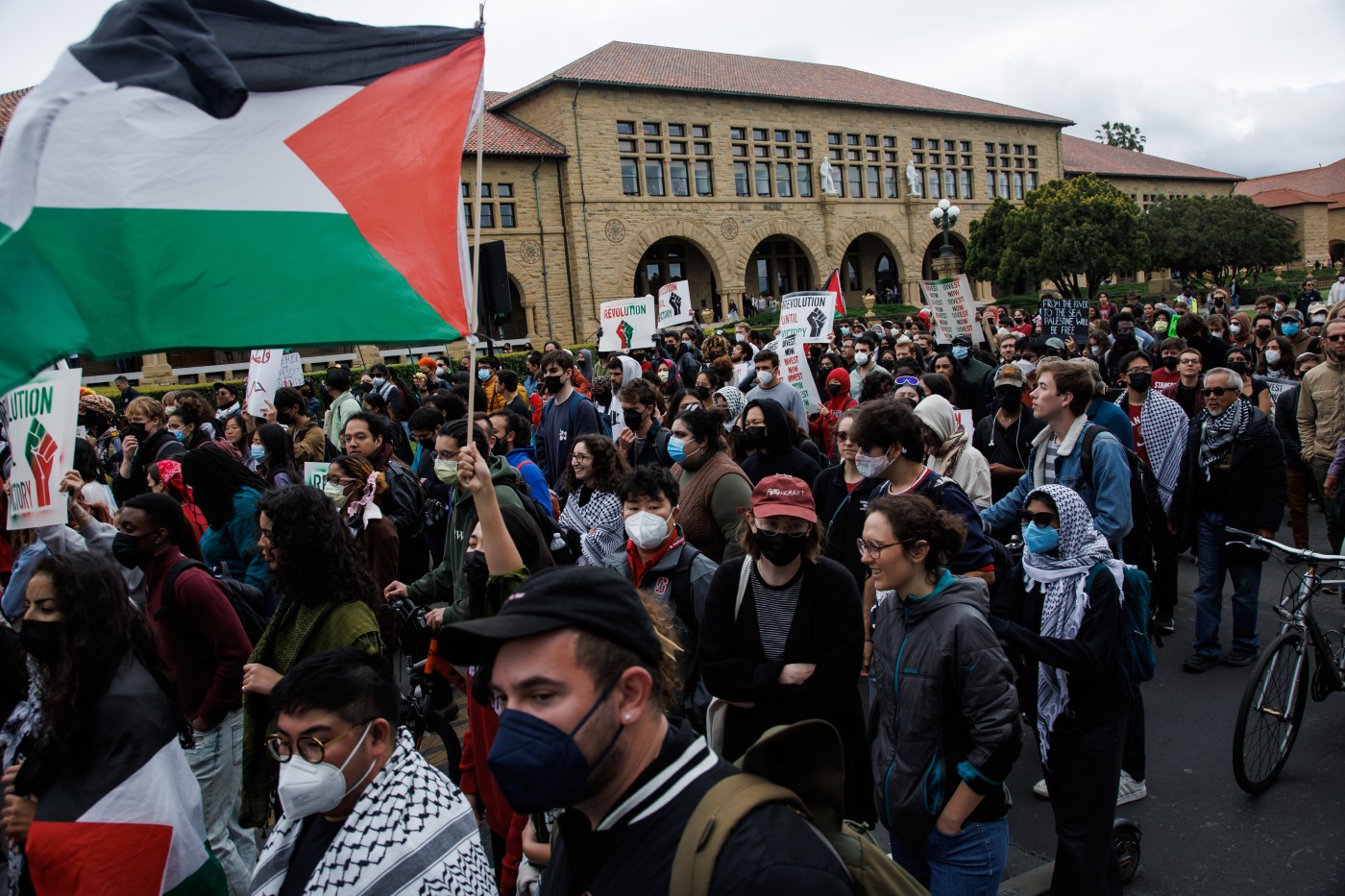
Stanford University’s independent student newspaper and two noncitizen students filed a lawsuit on Wednesday against Secretary of State Marco Rubio and Secretary of Homeland Security Kristi Noem, alleging that federal immigration policies are being used to suppress protected political speech under the Trump administration.
The federal complaint, filed in San Jose by the Stanford Daily and two noncitizen students identified as “John Doe” and “Jane Doe,” challenges the use of two provisions in the Immigration and Nationality Act.
Related Articles
San Mateo County supports public access to Sheriff Corpus removal hearing
Editorial: Open up secret Sheriff Corpus removal hearings now
First Amendment advocates urge open hearing for San Mateo County sheriff facing removal
ACLU, California city settle lawsuit over artwork protesting police brutality
Dan Siegel, celebrated Bay Area civil rights lawyer who led People’s Park protests, dies at 79
The provisions named include the “Deportation Provision,” which gives the Secretary of State the authority to initiate deportation proceedings based on a “personal determination” that a noncitizen’s speech or beliefs threaten a “compelling United States foreign policy interest,” and the “Revocation Provision,” which allows visa revocation “at any time” and for any reason.
The plaintiffs claim the government has used the provisions to revoke visas and threaten deportation of noncitizens who have expressed views on U.S. and Israeli foreign policy, resulting in what they describe as a “chilling effect” on political expression.
The lawsuit argues that using these provisions to target political speech violates the First Amendment.
“Secretary of State Marco Rubio and the Trump administration are trying to turn the inalienable human right of free speech into a privilege contingent upon the whims of a federal bureaucrat, triggering deportation proceedings against noncitizens residing lawfully in this country for their protected political speech regarding American and Israeli foreign policy,” the lawsuit read.
The legal filing cites Columbia University student Mahmoud Khalil and Tufts University student Rümeysa Öztürk as examples of noncitizens who allegedly faced visa issues in connection with their political speech. According to the complaint, Khalil was targeted over pro-Palestinian advocacy, while Öztürk faced repercussions after co-authoring an op-ed — examples the plaintiffs say reflect how the government is applying immigration law to penalize political expression.
The Foundation for Individual Rights and Expression (FIRE), which is representing the plaintiffs, said the legal action seeks to prevent the government from applying policies in ways that restrict constitutionally protected speech.
“In the United States of America, no one should fear a midnight knock on the door for voicing the wrong opinion,” said FIRE attorney Conor Fitzpatrick. “Free speech isn’t a privilege the government hands out. Under our Constitution it is the inalienable right of every man, woman, and child.”
The lawsuit cites the 1945 Supreme Court case Bridges v. Wixon, which held that noncitizens residing in the U.S. are entitled to freedom of speech protections. The plaintiffs argue that the challenged immigration provisions conflict with that precedent.
Greta Reich, editor-in-chief of The Stanford Daily, said the environment has affected newsroom operations.
“I’ve had reporters turn down assignments, request the removal of some of their articles, and even quit the paper because they fear deportation for being associated with speaking on political topics, even in a journalistic capacity,” Reich said.
Last year, Stanford was among hundreds of universities across the United States where pro-Palestine encampments were established. The protests called on universities to divest from companies alleged to be connected to the war in Gaza.
Following the protests, the university faced criticism over its handling of campus free speech. A university subcommittee identified incidents of antisemitism and anti-Israel bias, while a separate report documented cases of Islamophobia and discrimination against Muslim, Arab, and Palestinian students.
The Department of Homeland Security denied the lawsuit’s allegations.
“This lawsuit is baseless and political,” Assistant Secretary Tricia McLaughlin said in an email to this news organization. “DHS doesn’t arrest people based on protected speech. DHS takes its role in removing threats to the public and our communities seriously, and the idea that enforcing federal law in that regard constitutes some kind of prior restraint on speech is laughable.”
McLaughlin also stated that some visa cancellations have involved individuals she described as “terrorist sympathizers.”
“We are under no obligation to admit them or let them stay here,” McLaughlin said. “Secretary Noem has made it clear that anyone who thinks they can come to America and hide behind the First Amendment to advocate for anti-American and anti-Semitic violence and terrorism – think again.”
When asked whether any visa revocations were directly linked to affiliations with designated terrorist organizations and not just political speech, DHS did not respond.
The State Department and the office of Secretary Rubio also did not respond to requests for comment as of press time.
FIRE Legal Director Will Creeley said the case raises broader concerns about free speech protections for noncitizens.
“Two lawful residents of the United States holding the same sign at the same protest shouldn’t be treated differently just because one’s here on a visa,” Creeley said. “The First Amendment bars the government from punishing protected speech — period.”
In a separate incident last year, Stanford Daily reporter Dilan Gohill was among 13 individuals arrested during a pro-Palestine demonstration at the university president’s office.
The university and Santa Clara County District Attorney Jeff Rosen later declined to pursue disciplinary or criminal charges against the student journalist.